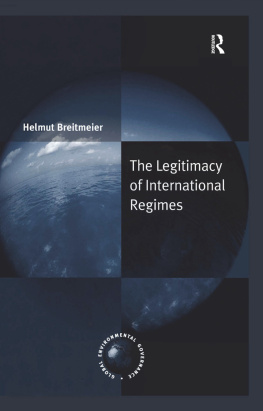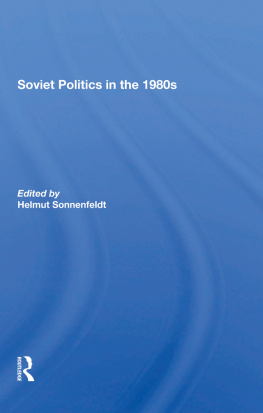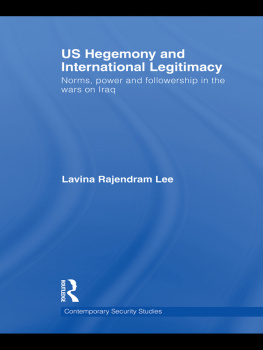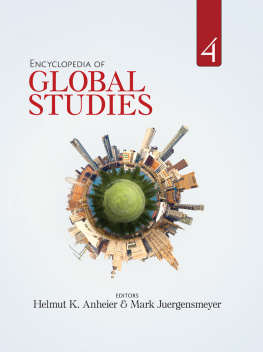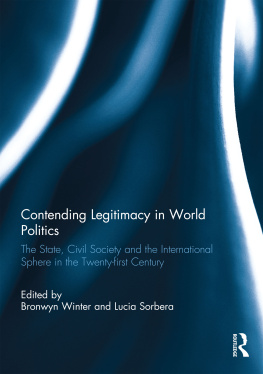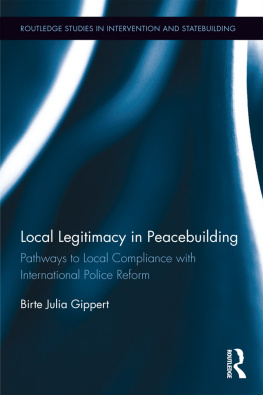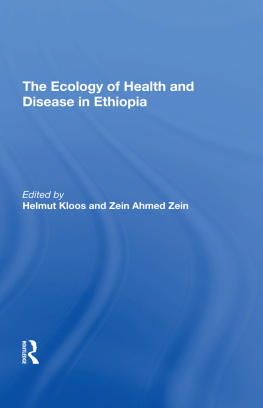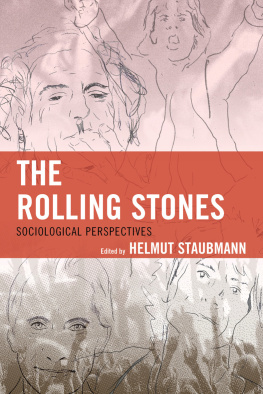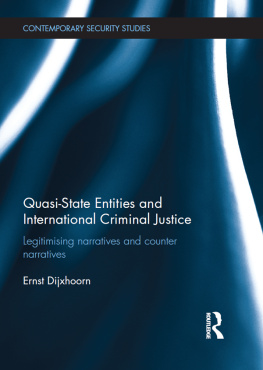THE LEGITIMACY OF INTERNATIONAL REGIMES
Global Environmental Governance
Series Editors : John J. Kirton, Munk Centre for International Studies, Trinity College, Canada and Miranda Schreurs, Freie Universitt Berlin, Germany
Global Environmental Governance addresses the new generation of twenty-first century environmental problems and the challenges they pose for management and governance at the local, national, and global levels. Centred on the relationships among environmental change, economic forces, and political governance, the series explores the role of international institutions and instruments, national and sub-federal governments, private sector firms, scientists, and civil society, and provides a comprehensive body of progressive analyses on one of the worlds most contentious international issues.
Titles in the series
Governing Agrobiodiversity Plant Genetics and Developing Countries
Regine Andersen
ISBN 978-0-7546-4741-6
The Social Construction of Climate Change Power, Knowledge, Norms, Discourses
Edited by
Mary E. Pettenger
ISBN 978-0-7546-4802-4
Governing Global Health Challenge, Response, Innovation
Edited by
Andrew F. Cooper, John J. Kirton and Ted schrecker
ISBN 978-0-7546-4873-4
Participation for Sustainability in Trade
Edited by
sophie Thoyer and Benot Martimort-Asso
ISBN 978-0-7546-4679-2
Bilateral Ecopolitics Continuity and Change in Canadian-American Environmental Relations
Edited by
Philippe Le Prestre and Peter Stoett
ISBN 978-0-7546-4177-3
The Legitimacy of International Regimes
Helmut Breitmeier
Fernuniversitt in Hagen, Germany
First published 2008 by Ashgate Publishing
Published 2016 by Routledge
2 Park Square, Milton Park, Abingdon, Oxon OX14 4RN
711 Third Avenue, New York, NY 10017, USA
Routledge is an imprint of the Taylor & Francis Group, an informa business
Copyright 2008 Helmut Breitmeier
Helmut Breitmeier has asserted his moral right under the Copyright, Designs and Patents Act, 1988, to be identified as the author of this work.
All rights reserved. No part of this book may be reprinted or reproduced or utilised in any form or by any electronic, mechanical, or other means, now known or hereafter invented, including photocopying and recording, or in any information storage or retrieval system, without permission in writing from the publishers.
Notice:
Product or corporate names may be trademarks or registered trademarks, and are used only for identification and explanation without intent to infringe.
British Library Cataloguing in Publication Data
Breitmeier, Helmut
The legitimacy of international regimes - (Global environmental governance series)
1. International agencies 2. Jurisdiction (International law) 3. Environmental policy - International cooperation
I. Title
341.2
Library of Congress Cataloging-in-Publication Data
Breitmeier, Helmut,
The legitimacy of international regimes / by Helmut Breitmeier.
p. cm. -- (Global environmental governance)
Includes bibliographical references and index.
ISBN 978-0-7546-4411-8 (alk. paper)
1. Environmental policy--International cooperation. 2. Environmental protection--International cooperation. 3. International organization. 4. Legitimacy of governments. I. Title.
JZ1324.B74 2008
341.2--dc22
2008030278
ISBN 9780754644118 (hbk)
This book has benefited from the intellectual guidance and the support of many people. Marc A. Levy, Oran R. Young, and Michael Zrn had initiated the project on the creation of the International Regimes Database (IRD). I joined this group soon after it had taken up its work. This took place in the context of a comprehensive research project on the Implementation and Effectiveness of International Environmental commitments carried out at the International institute for Applied Systems Analysis (IIASA) in Laxenburg (Austria). The development of a data-protocol that can be used for the coding of regimes remarked the first major achievement. The developers of this data-protocol benefited from the advice of members of the IIASA -project and of case-study experts who participated in trial runs carried out for the testing of previous versions of this codebook. After the end of an interim-period that followed the completion of the IIASA-project, new financial support was provided by the German Research Association (DFG) for the coding of a significant number of regimes. Additional funding for this coding phase became also available from the US national science foundation (NSF) and the German American Academic Council Foundation (GAAC). The discussions which I had with Oran and Michael during the coding phase expanded my horizon about the analysis of international institutions. I benefited substantially from their advice during the implementation of this project.
I am very grateful to the following experts who participated in the coding of 23 regimes: Matthew R. Auer, James S. Beckett, Thomas Bernauer, Pamela S. chasek, Rene Coenen, Elizabeth Corell, Debbie Davenport, Leonard B. Dworsky, Peter Ehlers and members of the Helsinki-Commission, Christel Elvestad, David S. Favre, Robert L. Friedheim, Ray Gambell, Fred P. Gale, Andy Garner, Brian Hallman, Geir Honneland, Gudrun Henne, Richard A. Herr, James Joseph, Christopher C. Joyner, Jonathan P. Krueger, Jack Manno, Frank Marty, Britta Meinke, Radu Mihnea, Ronald B. Mitchell, Illya Natchkov, Kate Oneill, Sebastian Oberthr, Edward A. Parson, Dwight Peck, Gerard Peet, MJ Peterson, Kal Raustiala, Lasse Ringius, Peter H. Sand, Sibel Sezer, Clare Shine, Jon Birger Skjaerseth, David G. Victor, Virginia Walsh, Jacob Werksman, Jorgen Wettestad, Koos Wieriks, Andrea Williams, and Bernhard Zangl. I admire their expertise about regime-related issues and the long-term experience which they gained as research scholars, participants in regime negotiations, leading staff members of international institutions and national ministries or agencies, or as representatives of non-state actors. I also owe a debt of gratitude to many students who gave advice on regimes that can be coded for the IRD or who helped to identify case-study experts that can take roles as coders. I would also like to thank the staff members of those 13 regime secretariats who filled out a separate questionnaire for the collection of information about rules that govern participation by various types of non-state actors in regimes.
During the process of data collection and the development of theoretical concepts that became established in this book, I strongly benefited from collaboration with my colleagues at the Department of Political science at Darmstadt University of Technology. Klaus Dieter Wolf and his research group have been extremely supportive in various ways. Discussions with Klaus Dieter Wolf, Ingo Take and other colleagues in Darmstadt helped me to sharpen my view about regimes as arenas which are determined by conflict and interplay among various types of actors in world politics. Discussions with colleagues also caused me to reflect more critically on the influence of the broad range of non-state actors on the formation, evolution or effectiveness of international governance systems. Some of my thoughts about the impact of non-state actors on international institutions took shape in discussions with Volker Rittberger in Tbingen. During the creation of the IRD and the production of this book, I benefited substantially from the assistance of student assistants in Darmstadt. Nina Bressel, Andreas Haidvogl, Silke Hajunga, Gerhard Kilian, Thomas Kessler and Kemal zden carried out a number of work-intensive tasks: the production of codebooks that were used for the coding of regimes; the review and editing of data delivered by coding experts; the production of additional queries addressed to coding experts pertaining to data which they had already delivered; the entering of data into the IRD. I am grateful to markus Patberg and Gwendolyn Remmert for the editing of the manuscript. Further on, Joachim Hereth and Tim Kaiser from the Department of Mathematics in Darmstadt gave assistance when we exported the database from Oracle to MS Access. I am also grateful to Heike Jensen who dealt with much of the administrative tasks that inevitably occur in an international research project.


